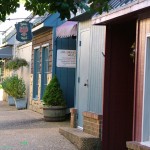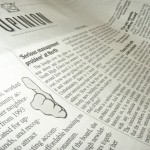
Times are definitely tough, despite what Bernanke may say about the recession. Squeezing the absolute most efficiency out of every marketing dollar spent has never been more important. More and more lately my conversations with business owners have turned to what tried and true marketing efforts that they always relied upon in the past that are now starting to provide lackluster results at best. For businesses whose customers come from a geographically local area, this concern comes in the form of, “my Yellow pages and local newspaper ads don’t seem to work anymore.” These bright entrepreneurs have even dabbled some with Twitter and Facebook but are finding that these social networks are not providing the kind of local targeting that they need. They’re a bit exasperated as to what to do.
Welcome LBS or Location-based Social Networking. This is the true marriage of GPS services with traditional forms of social networks thereby giving the added benefit for the people who you are connected with being able to locate where you are at any given time.
The true viral potential of social networks can really come to play in LBS if your business is truly local and relies upon people coming to your location and buying offline. Once you have become known, the people that like you and visit you tell their friends who want to join in the fun and they tell their friends and so on and so on. The possibilities are really endless.
Jennifer Van Grove in her article Beyond Yelp: Location-based Opportunities for Vendors, talks about two relatively new LBS based social network sites that are starting to get some real traction, particularly on the coasts.
I decided I would take a look at three social networks: http://yelp.com http://foursquare.com and http://brightkite.com to get my own take to see what potential there might be for local businesses. Keep in mind that there are constant suggestions and improvements being made to each of these properties so my opinions may become quickly dated. I also look at things from a strict marketing potential, not as much from the standpoint of whether I would engage in these on a personal basis.
Yelp.com
Yelp is kind of the grand daddy of LBS with a very successful track record. It is a very robust property and would be appropriate for probably the broadest spectrum of businesses from dentists and doctors, to beauty salons and spas, to bars and restaurants. Its twist is that users can provide reviews both positive and negative as well as providing lists of places that they frequent. There are nice ties into Twitter and Facebook and profiles can be customized with pictures and personal information. Keep in mind that anyone that is added as a friend or any review provided can be seen by anyone in the world, whether they belong to Yelp or not. The really nice thing about Yelp is the use of interactive maps for locations, much like Google maps.
Foursquare.com
Foursquare uses the very creative concept of “checking in” once the member arrives at a location, thereby letting their network know where they are. The unique aspect is the ability to build up check-in points with the ultimate goal of earning the badge of “mayor” of a particular location due to the number of times you visit the place. For the marketer, this becomes the opportunity to provide free drinks or coupons for any mayor that checks into your shop. This encourages them to notify their network of where they are. As with Yelp, there are nice ties into Twitter and Facebook and lots of help for API developers. There is even an IPhone application. The drawback here is that Foursquare is not in every city. As of the writing of this post I requested information as to when they would be in Kansas City.
Brightkite.com
Of the three, I felt like Brightkite has the farthest to go. Yes it connects people locally and it is location based and yes it has nice ties into Twitter and Facebook, but I just couldn’t see the “thing” it brings. What makes Brightkite special? One distinct advantage over Foursquare is that Brightkite is available in more locations.
With all of these properties I would advise getting into them and experimenting some. Perhaps with another post, I can talk about ways in which a business would promote themselves, to get better visibility on these LBS networks.
The bottom line is that many many people are using the smart phones to find friends, places to eat, recommendations for good doctors and places to shop and they want them to be local and findable.
Is your locale local? If it is, then you need to understand location-based social networking.
All my best,
David


